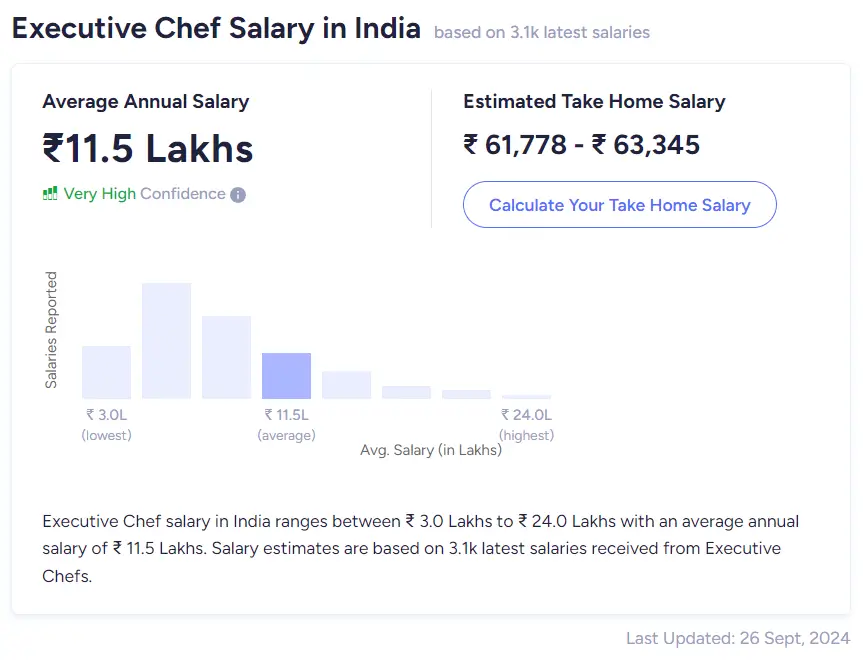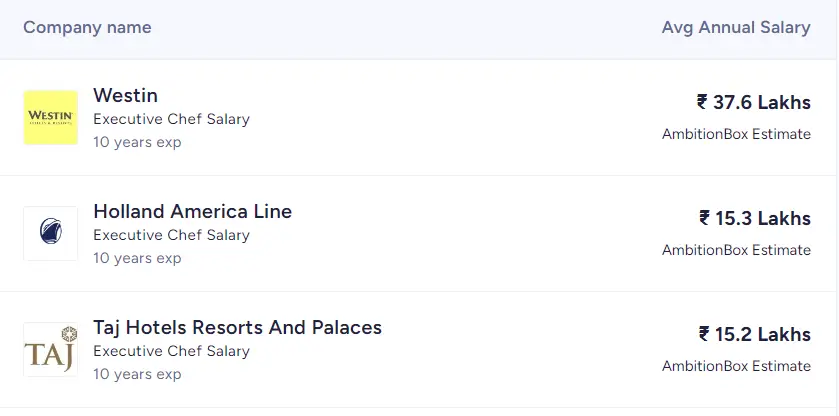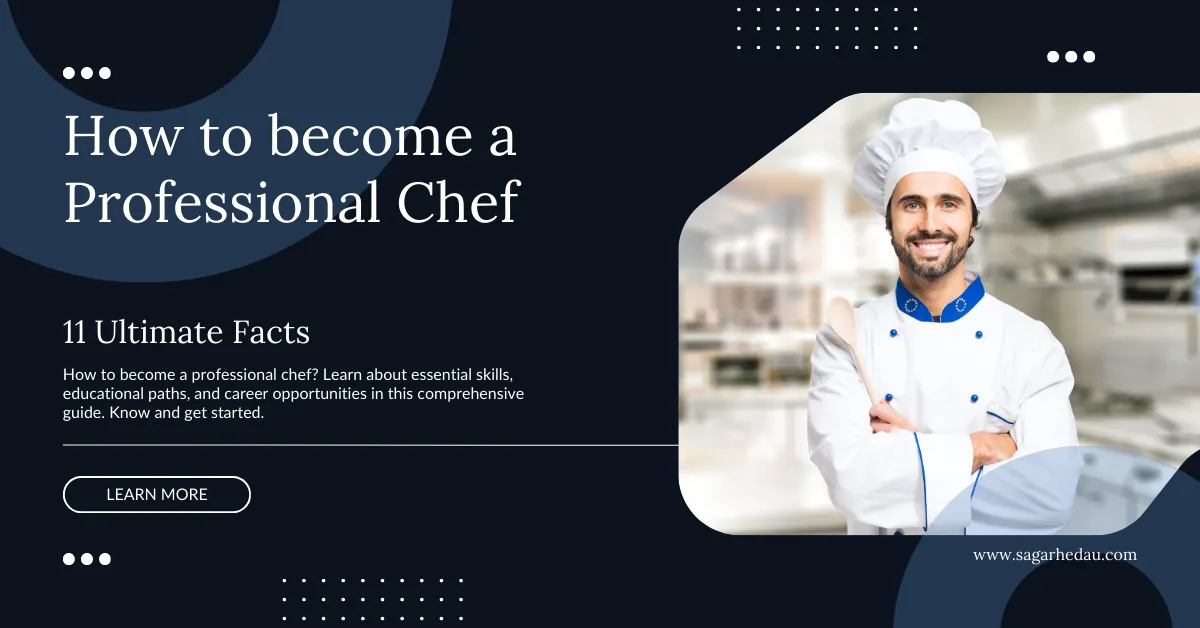So, you want to be a Professional Chef? You should and here’s why. The culinary profession is a dynamic and challenging field that combines creativity, technical skill, and business acumen. Professional chefs are responsible for creating delicious meals, managing kitchen operations, and ensuring food safety standards are met. The industry offers diverse career paths, from working in high-end restaurants and hotels to catering, food product development, and even television. The question is why and how to become a professional chef.
It is a great job. Chefs are creators and magicians in food and they can make any dish go WOW with their just skills. It is a tough job, obviously! Chefs must be adaptable, able to work under pressure, and continuously learn new techniques and flavours. The profession demands long hours, physical stamina, and the ability to lead a team, but it can be incredibly rewarding for those passionate about food and cooking.
So, how to become a professional chef? The profession requires unwavering passion and dedication. The culinary world is highly competitive and demanding, often involving long hours, high-pressure environments, and physically demanding work. Passion for food and cooking is essential to fuel creativity, drive innovation, and maintain enthusiasm through challenging times.
Dedication is crucial for mastering the necessary skills, constantly improving techniques, and staying updated with industry trends. Successful chefs are those who view cooking not just as a job, but as a lifelong journey of learning and perfecting their craft. This passion and dedication are what separate great chefs from good ones and are often the key factors in long-term success and career satisfaction.
Let’s know the market first! What does it offer?

| Industry | Experience | Salary (in Lakhs) |
|---|---|---|
| Food, Beverage & Hospitality | 9 – 23 years | ₹11.5 |
| Customer Success, Service & Operations | 10 – 23 years | ₹8.9 |
| Production, Manufacturing & Engineering | 9 – 23 years | ₹7.8 |
| Research & Development | 9 – 21 years | ₹5.2 |
| Quality Assurance | 14 – 22 years | ₹11.7 |
Top Paying Companies/Hotel Chains

How to become a professional chef & where to learn from?
| College Name | Times of India ’23 Ranking |
|---|---|
| Culinary Academy of India | 2 |
| IIHM Hyderabad | 8 |
| WGSHA Manipal | 11 |
| IHM Aurangabad | 12 |
| Symbiosis School of Culinary Arts | 17 |
Best Government Culinary Arts Colleges in India
| College Names | Total Tuition Fee/ Seat Intake | Eligibility |
|---|---|---|
| IHM Pusa Admission | INR 50,000 – INR 90,000 | Pass in Class 12 |
| IHM Dehradun Admission | INR 92,000 – INR 95,000 | Pass in Class 12 |
| IHM Chennai Admission | INR 31,000 – INR 54,000 | Pass in Class 12 |
| IHM Mumbai Admission | INR 30,000 – INR 88,000 | Pass in Class 12 |
Best Private Culinary Arts Colleges in India with Fees
| College Names | Total Tuition Fee/ Seat Intake | Entrance Exam/Eligibility |
|---|---|---|
| D Y Patil School of Hospitality and Tourism Studies, Navi Mumbai | INR 50,000 – INR 12 lakh | Pass in Class 12 |
| Welcomgroup Graduate School of Hotel Administration, Manipal Academy of Higher Education | INR 4 lakh – INR 7 lakh | Cleared Class 12/ A level/ IB/ American high school diploma or an equivalent from a recognised board |
| SSCA Pune | INR 1 lakh – INR 12 lakh | Pass in Class 12 |
| SRM Institute of Hotel Management | INR 60,000 – INR 1 lakh | Pass in Class 12 |
| Chitkara College of Hospitality Management | INR 6 lakh – INR 19 lakh | Entrance Exam: SAT IndiaClass 12 with 50% aggregate |
How to become a Professional Chef? What do you need to learn?
Education and Training
Culinary school options
Culinary schools offer structured programs that provide a comprehensive foundation in cooking techniques, food science, and kitchen management. Options range from vocational schools to degree programs at universities. Renowned institutions like Le Cordon Bleu and the Culinary Institute of America offer intensive training, while community colleges often provide more affordable alternatives.
These programs typically cover a wide range of cuisines, baking and pastry arts, nutrition, and business management. Students benefit from hands-on experience in professional kitchens, industry connections, and often internship opportunities. While not mandatory, formal culinary education can accelerate career progression and provide a strong theoretical background to complement practical skills.
Apprenticeships and on-the-job training
Apprenticeships and on-the-job training offer aspiring chefs practical experience in real-world kitchen environments. These opportunities allow individuals to learn directly from experienced chefs while earning a wage. Apprenticeships often combine formal instruction with hands-on work, providing a structured pathway to becoming a skilled chef.
On-the-job training, while less formal, allows individuals to start at entry-level positions and work their way up, learning various aspects of kitchen operations along the way. This path can be particularly valuable for those who learn best through direct experience and prefer to immerse themselves in the industry immediately. It also allows for networking and building relationships within the culinary world.
Continuing education and specializations
The culinary world is constantly evolving, making continuing education crucial for career growth. Chefs can pursue specialized courses in areas such as molecular gastronomy, farm-to-table cooking, or international cuisines to expand their skill set. Professional certifications, like those offered by the Indian Federation of Culinary Associations (IFCA) Professional Certification, can prove to be extremely useful.
Workshops and masterclasses led by renowned chefs provide opportunities to learn cutting-edge techniques and stay updated on industry trends. Some chefs also pursue advanced degrees in culinary arts or related fields like hospitality management. Continuous learning not only improves culinary skills but also keeps chefs inspired and innovative in their approach to cooking.
Gaining Experience
Entry-level positions in professional kitchens
In India, aspiring chefs typically start their careers in entry-level positions such as kitchen assistants or commis chefs. These roles are available in various establishments, from local restaurants to high-end hotels in major cities like Mumbai, Delhi, and Bangalore. Many begin in chain restaurants or mid-scale hotels, which offer structured training programs.
Tasks often include basic food preparation, maintaining kitchen cleanliness, and assisting senior chefs. The Indian hospitality industry, growing rapidly, provides numerous opportunities for newcomers to gain hands-on experience. Working in these positions exposes aspiring chefs to the fast-paced environment of Indian kitchens and the diverse flavours of regional cuisines.
Stages (unpaid internships) at renowned restaurants:
While the concept of stages is less common in India compared to Western countries, it’s gaining traction, especially in upscale restaurants and five-star hotels. Aspiring chefs can seek short-term unpaid internships at renowned establishments like Indian Accent in New Delhi, Bukhara at ITC Maurya, or Wasabi by Morimoto at the Taj Mahal Palace in Mumbai.
These experiences offer invaluable insights into high-end culinary operations and innovative cooking techniques. Some Indian culinary schools also facilitate such internships as part of their curriculum. However, it’s important to note that labour laws in India are strict about unpaid work, so these opportunities are often structured as part of educational programs.
Competing in culinary competitions
Culinary competitions are becoming increasingly popular in India, offering a platform for chefs to showcase their skills and gain recognition. Events like the Indian Culinary Forum’s Chef Awards, IFCA International Chefs Conference, and the National Culinary Competition organized by various hotel management institutes provide opportunities for both students and professional chefs.
These competitions often focus on both Indian and international cuisines, challenging participants to innovate while respecting traditional techniques. Winning or even participating in such events can significantly boost a chef’s profile in India’s competitive culinary landscape. Additionally, some Indian chefs have represented the country in international competitions like the Bocuse d’Or, further elevating the status of Indian cuisine on the global stage.
Developing Essential Skills
Knife skills and food preparation techniques
Mastering knife skills is fundamental for any chef. This involves learning various cutting techniques like julienne, brunoise, and chiffonade, as well as understanding how to handle different types of knives efficiently and safely. In India, this extends to specialized techniques for preparing ingredients common in Indian cuisine, such as finely chopping herbs for garnishes or precisely cutting vegetables for curries.
Food preparation techniques include understanding different cooking methods (braising, sautéing, tandoor cooking) and how they affect ingredients. Chefs must also learn to prep ingredients in advance (mise en place) to ensure smooth kitchen operations during service hours.
Menu planning and recipe development
This skill involves creating balanced, appealing menus that consider factors like seasonality, local ingredients, and dietary restrictions. In India, chefs need to understand regional cuisines and how to blend traditional flavours with modern techniques. Recipe development requires creativity and technical knowledge to create dishes that are both delicious and reproducible.
Chefs must also consider cost-effectiveness, plating aesthetics, and how dishes complement each other. In the Indian context, this might involve reimagining classic dishes or developing fusion cuisine that combines Indian flavours with international cooking styles.
Kitchen management and organization
Effective kitchen management is crucial for smooth operations. This includes organizing the kitchen layout for efficiency, managing inventory and supplies, and coordinating staff roles and responsibilities. In busy Indian kitchens, especially during festivals or wedding seasons, strong organizational skills are essential to handle high-volume orders.
Chefs must learn to delegate tasks, manage time effectively, and maintain clear communication among kitchen staff. Understanding the principles of FIFO (First In, First Out) for ingredient storage and efficient workflow management is also crucial.
Food safety and sanitation
Maintaining high standards of food safety and sanitation is non-negotiable in professional kitchens. In India, where food-borne illnesses can be a concern, this is particularly crucial. Chefs must understand and implement FSSAI (Food Safety and Standards Authority of India) guidelines, which cover aspects like personal hygiene, safe food handling practices, proper storage temperatures, and prevention of cross-contamination.
They should also be familiar with HACCP (Hazard Analysis Critical Control Points) principles. Regular staff training on hygiene practices, proper cleaning and sanitization of kitchen equipment, and maintaining a clean working environment are essential responsibilities of a professional chef in India.
Building Your Culinary Style
Experimenting with different cuisines and techniques
India’s culinary landscape is incredibly diverse, offering a rich playground for chefs to experiment. This involves exploring regional cuisines beyond one’s familiar territory – for instance, a chef from North India delving into the coastal flavours of Kerala or the tribal cuisines of the Northeast. Experimenting also means blending traditional Indian techniques with international methods.
For example, applying French sous-vide cooking to Indian curries or using molecular gastronomy techniques with Indian spices. Chefs might experiment with fusion cuisines, like Indo-Chinese or Indo-Italian, which are popular in India. This experimentation not only broadens a chef’s skill set but also helps in developing a unique culinary voice that stands out in India’s competitive restaurant scene.
Developing a signature dish or style
Creating a signature dish or style is crucial for chefs to differentiate themselves in India’s bustling culinary world. This might involve reimagining a classic Indian dish with a modern twist, like a deconstructed biryani or a molecular version of rasgulla. Alternatively, it could mean developing a unique fusion style that reflects the chef’s background and experiences – perhaps combining elements of their home state’s cuisine with international techniques they’ve learned.
For instance, a chef might become known for Gujarati-inspired sushi or Chettinad-spiced French pastries. The key is to create something that’s not only delicious and innovative but also tells a story and resonates with diners. In India, where food is deeply tied to culture and tradition, a signature style that respects roots while pushing boundaries can be particularly impactful.
Staying updated on food trends and innovations
The Indian food scene is rapidly evolving, with new trends emerging regularly. Chefs must stay informed about both local and global food trends. This could involve following food blogs, podcasts, and social media accounts of influential Indian and international chefs. Trends in India might include the rise of plant-based dining, the renewed focus on ancient grains and millets, or the growing interest in hyperlocal cuisines. Innovations in cooking techniques, like the use of air fryers to create healthier versions of Indian fried snacks, are also important to follow.
Attending food technology expos and culinary demonstrations can provide insights into new kitchen equipment and ingredients. Additionally, understanding wider trends like sustainability, zero-waste cooking, and food as medicine is crucial, as these concepts are gaining traction in India’s urban centers. Staying updated allows chefs to remain relevant and innovative in their approach to Indian cuisine.
Networking and Professional Development
Joining professional associations
In India, several professional associations cater to chefs and culinary professionals. The Indian Federation of Culinary Associations (IFCA) is one of the most prominent, representing India in the World Association of Chefs Societies. Other notable organizations include the Indian Culinary Forum (ICF) and the Chef’s Association of India. Joining these associations offers numerous benefits: access to industry news, continuing education opportunities, and networking events.
Members often receive invitations to workshops, seminars, and culinary competitions. These associations also advocate for the profession, working to raise standards in the industry and promote Indian cuisine globally. For young chefs, membership can provide mentorship opportunities and a platform to showcase their skills to industry leaders.
Attending industry events and conferences
India hosts several major culinary events and conferences that are crucial for professional development. The International Chefs Conference, organized annually by the IFCA, brings together chefs from across India and abroad to discuss industry trends, showcase innovations, and participate in culinary competitions.
Trade shows like AAHAR, India’s largest hospitality and food service event, offer exposure to the latest kitchen equipment, ingredients, and food products. Regional food festivals, such as the National Street Food Festival in Delhi, provide opportunities to explore diverse Indian cuisines. Attending these events allows chefs to stay updated on industry trends, learn new techniques, and connect with peers and potential employers.
Building relationships with suppliers and fellow chefs
Networking is crucial in the culinary world, and India’s diverse food culture offers unique opportunities. Building relationships with local suppliers is essential for sourcing high-quality, seasonal ingredients. This might involve visiting farmers’ markets, meeting with spice merchants, or touring local farms. These connections can lead to exclusive access to premium or rare ingredients, enhancing a chef’s ability to create unique dishes.
Networking with fellow chefs, both within and outside one’s current workplace, is equally important. This can lead to collaborations, job opportunities, and knowledge exchange. Social media platforms like Instagram and LinkedIn have become important tools for Indian chefs to showcase their work and connect with peers. Participating in chef exchange programs or collaborative dinners with restaurants in different regions of India can also broaden a chef’s network and expertise in various regional cuisines.
Career Advancement as a Professional Chef
Climbing the Kitchen Hierarchy
To advance in a culinary career, chefs often work their way up the kitchen hierarchy, which typically starts with entry-level positions like commis chef or line cook. With experience, they can progress to higher roles, such as chef de partie (station chef) in charge of a specific section, then to sous chef, the second-in-command, and finally to head chef or executive chef. This progression involves gaining expertise, leadership skills, and responsibility over time.
Specializing in a Particular Cuisine or Cooking Method
Many chefs choose to specialize in a specific type of cuisine (e.g., French, Italian, or Japanese) or a particular cooking method (e.g., baking, grilling, or pastry arts). Specialization allows chefs to develop a deep mastery in a focused area, making them more valuable in high-end restaurants or niche markets. By becoming an expert in a certain culinary style, they can command higher salaries and attract a loyal clientele.
Pursuing Executive Chef Positions
The ultimate goal for many professional chefs is to become an executive chef. In this role, they not only oversee the kitchen staff and operations but also play a significant role in menu development, food sourcing, and restaurant management. Reaching this level requires both excellent culinary skills and strong business acumen, as executive chefs are responsible for the financial success of the kitchen as well.
Alternative Career Paths for Professional Chefs
Personal Chef Services
Many chefs branch out from traditional restaurant kitchens to become personal chefs. In this role, they prepare customized meals for individual clients, often catering to dietary preferences or restrictions. Personal chefs may work for families, busy professionals, or even celebrities, providing meal prep, cooking at private events, or offering in-home dining experiences. This path offers more flexibility, creative freedom, and a direct connection to clients.
Food Writing and Media
Chefs with a flair for storytelling and communication may transition into food writing or media. This could involve writing cookbooks, food blogs, or contributing articles to culinary magazines. Additionally, chefs can become food critics or host cooking shows, using their expertise to educate and entertain a broader audience. The food media industry allows chefs to combine their love of cooking with writing, broadcasting, or content creation, offering a platform to reach more people without the demands of a kitchen.
Culinary Education and Teaching
For chefs who enjoy mentoring and sharing knowledge, pursuing a career in culinary education is a natural fit. They can teach at culinary schools, offer private cooking classes, or become instructors in specialized areas like pastry arts or knife skills. Teaching allows chefs to shape the next generation of culinary professionals while staying connected to the craft in a less physically demanding environment.
To Conclude
So, how to become a professional chef? Recap of Key Steps
Becoming a professional chef involves a combination of education, hands-on experience, and continuous improvement. Key steps include obtaining formal culinary training, gaining experience in various kitchen roles, mastering different cooking techniques, and building a strong professional network.
Aspiring chefs should also consider specializing in a particular cuisine or cooking method and be open to exploring alternative career paths such as personal chef services, food writing, or culinary education. Each of these avenues can provide unique opportunities for growth and fulfillment in the culinary field.
Encouragement for Aspiring Chefs
For those considering a career in cooking, remember that the culinary journey is filled with creativity, passion, and endless possibilities. While the path may be challenging, with dedication and hard work, you can carve out a rewarding niche for yourself in the culinary world. Stay curious, keep learning, and embrace every opportunity to refine your skills.
Whether you dream of running your own restaurant, becoming a renowned chef, or exploring alternative career paths, the culinary arts offer a vibrant and exciting career that can bring joy to yourself and others through the love of food.


